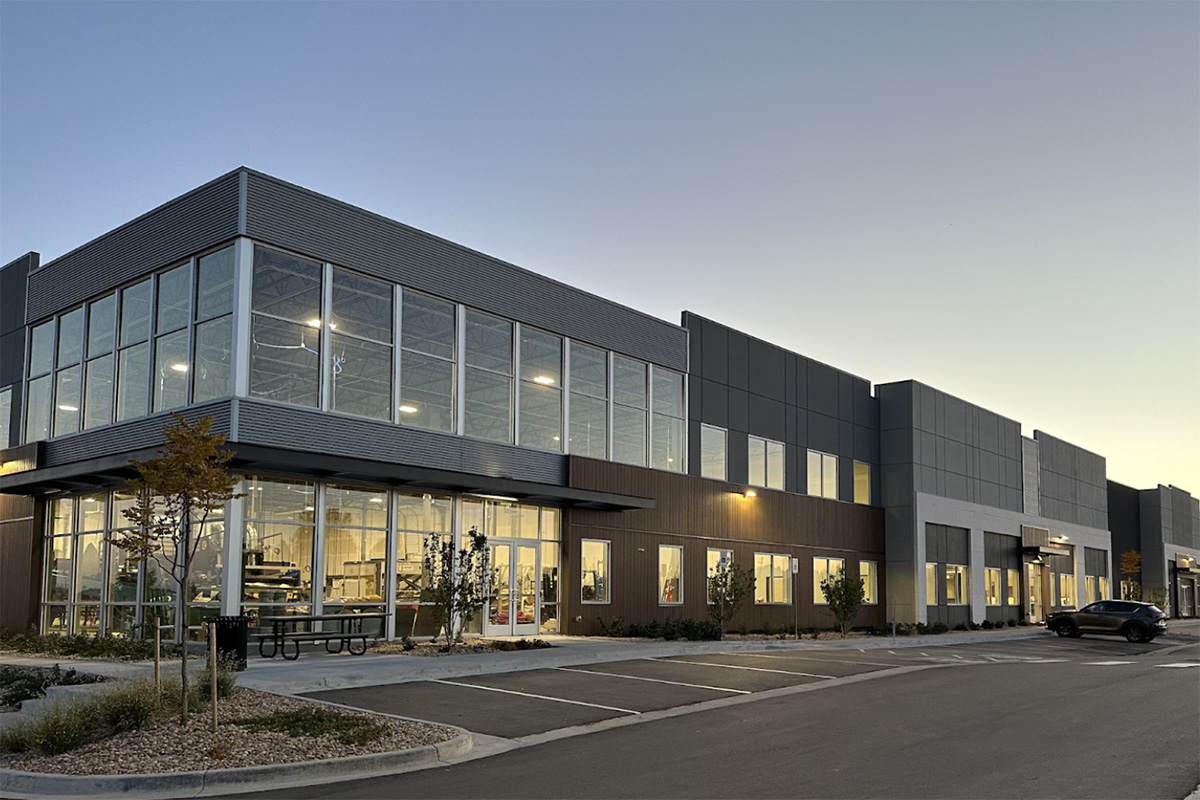AI-driven sortation systems provider AMP and hauler Waste Connections are partnering to build a new MRF in Colorado, slated to open in early 2026.
AMP, which provides AI-powered waste and recycling sortation, will equip and operate the new facility, located in Commerce City near Denver. The site will be the first in Colorado for Waste Connections, and will have an annual single-stream processing capacity of up to 62,000 tons.
The facility will use an AMP ONE sortation system to process recyclables, according to Tim Stuart, who recently was named CEO of AMP. Formerly chief operating officer of Republic Services, Stuart replaces AMP founder Matanya Horowitz, who has assumed the role of chief technology officer.
“Our plan going forward is to have these partnerships with the big public companies, but also work directly with municipalities, and operate their facilities for them as well,” Stuart said.
While operating a MRF may position AMP as more of a competitor to the same companies for which it may have acted as a supplier, this collaboration won’t affect these relationships, Stuart said. “We offer this service to them as well, so we can do it in a different market for them,” he said, “so I don’t think there’s any adverse, short-term effects there.”
The recovered commodities will mostly be used domestically, Stuart said, though the destination could depend on who purchases the materials. Geographically, however, “Colorado is going to definitely lend itself more to domestic kind of feedstock for those industries.”
AMP operates several of its own facilities using AMP ONE, Stuart said. “This is the same system, we’re just applying it more in a commercial application, or a partnership with (Waste Connections) here,” he said. “This is kind of our launch to push this beyond internally.”
In 2021, AMP expanded into performing secondary sortation for residual bales from MRFs, opening its first commercial-scale site in Denver, soon followed by two more. And in early 2024, the erstwhile AMP Robotics rebranded to reflect its emerging focus on building recycling centers from scratch with AI-equipped sorting systems.
AMP’s technology is also being used in the mixed waste processing sector: Earlier this year, Recycling and Disposal Solutions of Virginia launched an AMP ONE system to help divert more than 60% of its landfill-bound material.
The Colorado facility will be fully integrated with AMP AI-driven technology, which will conduct automated sorting and extract targeted commodities based on customer specifications.
The AMP system is “flexible to our scale, sorting, and extended producer responsibility compliance needs, and can adapt as our commodity needs and waste stream changes,” said Mark Ceresa, division vice president for Waste Connections, in a press release.
By January 2026, Colorado will have fully rolled out its packaging EPR law. The impending increase in recycled materials collection has spurred other investment as well. WM is moving forward with its $100 million MRF campus in Denver, and expects to complete the facility by the end of Q2 2026.
The announcement comes as Waste Connections revised its 2024 guidance in its recent Q3 earnings call, raising estimated full-year revenue by $150 million to $8.9 billion. Adjusted EBITDA now is estimated at about $2.91 billion, up $50 million, while guidance for capital expenditures remained unchanged at about $1.15 billion.
In its most recent sustainability report, released Oct. 24, Waste Connections said 2023 recycled commodity volumes totaled 2.21 million tons, an increase of 1.1% from 2022 and 20% from 2021. The company is approaching its 2033 goal of 2.31 million tons of recycled material, which will represent an increase of 50% over 2018 volumes.






















